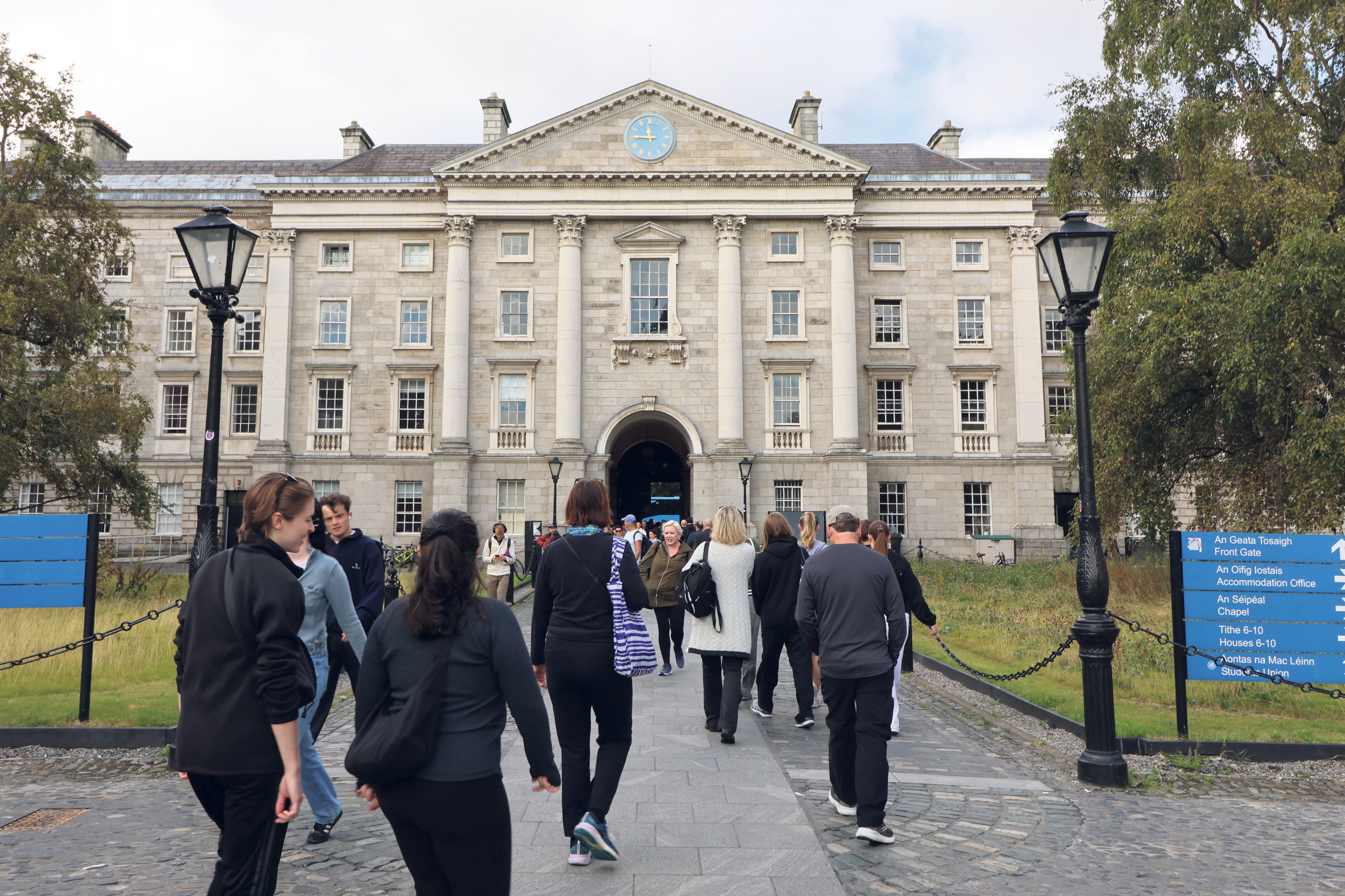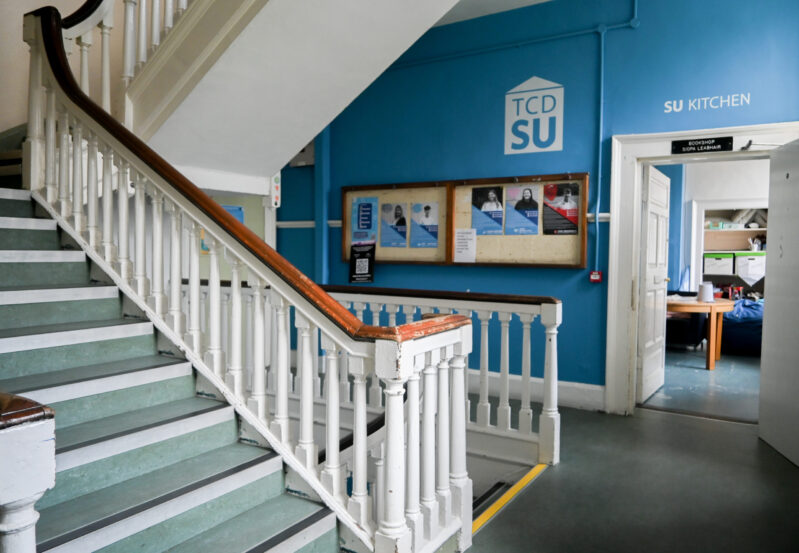“Education, Education, Ban the Tourists”.
Despite running a joke campaign in 2023 for Student Union President, Ralph Balfe’s priorities statement tapped into a pressing concern among students: Why all the tourists?
Every Trinity student is familiar with the frustration that arises from studying on a campus that is inundated with tourists. Running late for a tutorial wherein attendance is mandatory, you rush onto Front Square with seconds to spare. You trip over yourself trying to dodge the hordes of people taking pictures in front of the Campanile. You reach Fellows’ Square. You think you have survived the worst of it. But, before you can stop for a breath, you are met by a confused tourist. “Where is the business building?” they ask. You gesture in its vague direction, feign a smile, and quicken the pace.
While we have all been irritated by such occurrences, on-campus tourism does more harm than just inconveniencing the tardy student. Trinity attempts the incredible feat of balancing its two main priorities: students and tourists. Frequently, the balance is disrupted and the scales are tipped in favour of tourists. Instead of focusing its energy on upholding its reputation as a prestigious academic institution, Trinity prioritises itself as a business. College’s preference for tourists compromises the student experience by cultivating an unsettling sense of studying on a campus that exists not for students, but for visitors.
Given the increasingly high financial stakes, it is no wonder that the college prioritises tourists. Over two million people visit campus each year, with just under half of them visiting the Book of Kells Exhibition. In 2023, 900,000 people visited the Book of Kells Exhibition, generating €20.2 million in revenue, including income from the Old Library shop and guided tours.
In 2019, Geraldine Ruane, Trinity’s Chief Operating Officer at the time, told the Irish Times that this revenue is funnelled entirely back into academic work. She listed scholarships, building maintenance, and the recruitment of new professors as examples. The money “goes back purely for the students and the academics to create a better experience for them”. Nevertheless, it is worthwhile investigating the impact on students of the tourist-ridden environment they must navigate to incur this “better experience”.
Tourists are allowed to rove freely around campus. Herein lies a great deal of the controversy around their presence in Trinity. When tourism is confined to the Old Library and the Book of Kells Experience, students can sympathise with college’s need to turn a profit. But when tourists spill over into student spaces, they disrupt students who are trying to use campus for its intended purpose. Tourists often make it near impossible to find a seat in the Arts Block, or to use the bathroom between classes, or to grab a quick coffee at the Perch before a 9am lecture.
This sharing of facilities becomes especially exasperating during exam season, when campus is at its busiest. During this stressful period, students need places on campus where they can study when the library overflows, and where they can find respite in between intensive study sessions. The influx of tourists during exam season is burdensome for students who wish to occupy these spaces. The need to do laps around campus to find a place to sit is exhausting. With exams looming, the frustration compounds. Even when a seat is secured, the hustle and bustle that tourists bring is hugely distracting. With tourism comes noise, crowds, and distractions that make concentration an arduous endeavour. A college campus should be full of quiet places for students to revise in. But Trinity, being the tourist attraction it is, can prove to be lacking in this respect.
It is inappropriate that Trinity students are forced to share such a large portion of on-campus facilities with tourists, especially considering that Trinity does not generate any revenue from, say, letting tourists sit in the Arts Block or use the Arts Block bathrooms. It is essential to keep tourists on campus if Trinity is to continue functioning as is. College needs money and tourism is a reliable source. But tourists should not feel more welcome and accommodated on campus than the students themselves. There should be more restrictions regarding where they can go and what facilities they can use. There should be areas designated to tourism and visitors should not be so freely allowed to wander outside these spaces, especially during crucial exam periods. Lecture halls and student spaces should not be open to the public. These reforms would greatly improve students’ experience of campus, while not sacrificing the revenue generated from tourism.
The fact that Trinity is so popular among tourists speaks to the privileges of studying on its picturesque, historic campus. Tourists are drawn to it for the same reasons that many students choose to study here. But ultimately, Trinity is a college campus, and students should be able to use it as such in peace. Instead of cultivating an appropriate learning environment, College is allowing their commercial interests to undermine the very essence of the institution. College’s profit-driven prioritisation of tourists creates a stressful environment that is conducive neither to academic success nor student wellbeing. There is no need to cast students’ interests aside to uphold this source of revenue, and steps must be taken to reclaim campus from the tourists.







